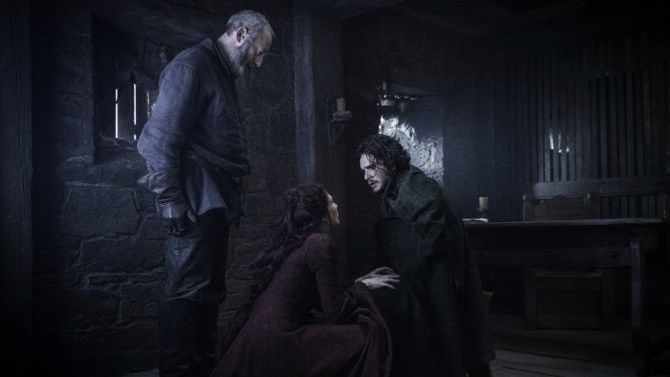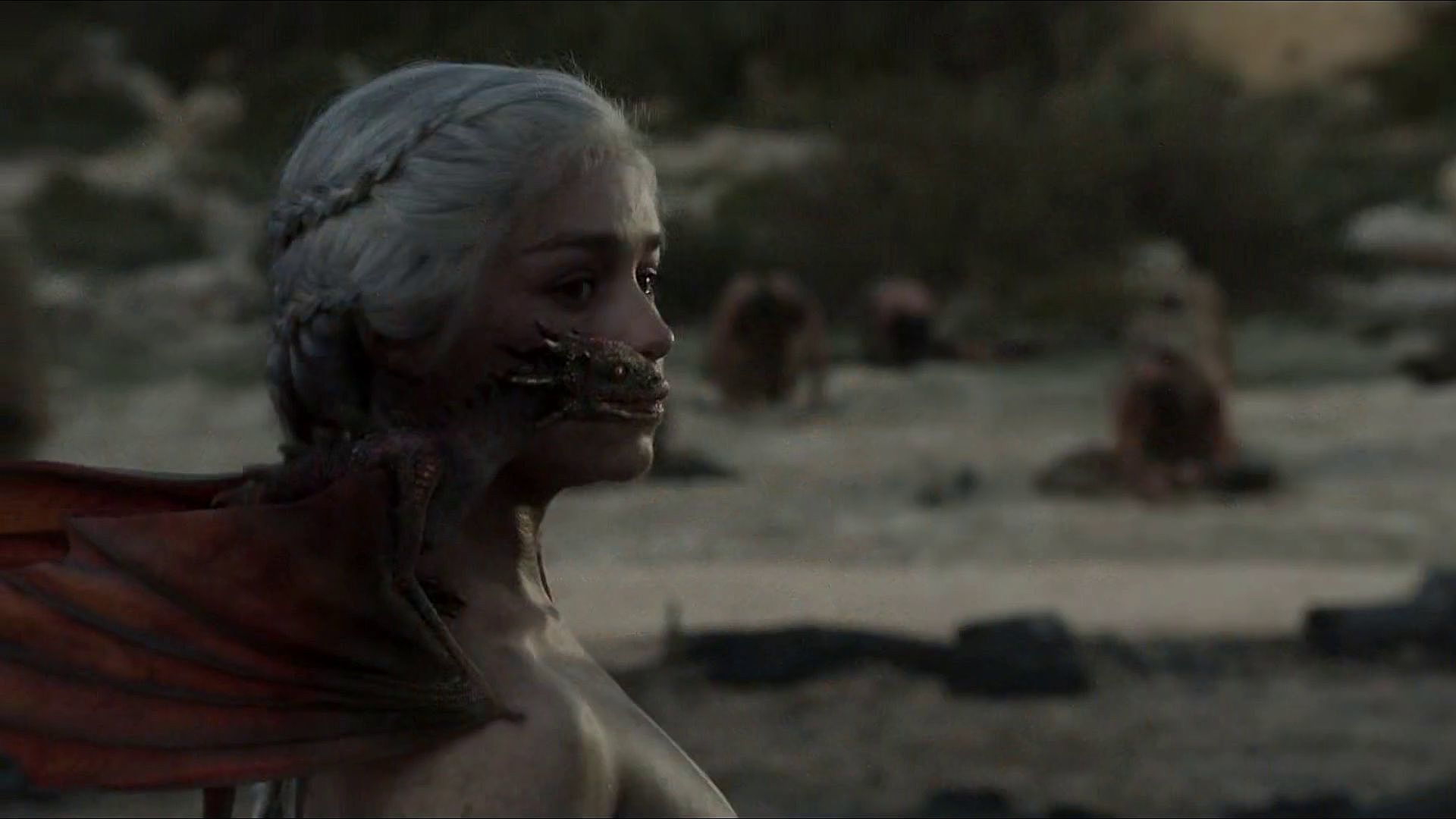Game of Thrones season 6 kicked off with Jon Snow being brought back to life after being murdered by the brothers of the Night’s Watch. Jon’s death and resurrection freed him of his vows to the Night’s Watch and set him on a new path that would eventually lead to meeting Daenerys Targaryen, the Mother of Dragons and the Breaker of Chains and so on and so forth.
As the end of Game of Thrones draws near, reconsidering one of the show’s biggest moments might point towards the end game. YouTuber Bridge4 has done just that, and comes to an interesting conclusion: It was actually Ser Davos Seaworth, and not Melisandre of Asshai, who raised Jon from the dead.
Say what? Watch below.
Bridge4’s hypothesis is that Thoros of Myr can bring Beric Dondarrion back because he is tapping in to a universal magic, accessible by anybody, rather than because he believes in the Lord of Light, as Melisandre thinks (wrongly, according to Bridge4). As Thoros himself admits, he did not really believe in the Lord of Light and was a terrible priest. Rather, it was Thoros’ love for his friend, and his belief in that love, that allowed him to perform a miracle, not the Lord of Light.
Before Stannis’ defeat, Melisandre’s belief in the Lord of Light was strong, and she was able to accomplish incredible things. We saw her drink poison, sure that the Lord would protect her, and she was protected. She gave birth to a shadow creature, and was able to stay warm even in freezing temperatures. Her belief, even if misplaced, gave her the ability to perform these feats. After Stannis’ defeat, Melisandre’s faith — in herself and in her god — was destroyed, rendering her powerless. Enter Ser Davos.
While Melisandre had lost her faith, Davos had not. From protecting Jon’s body to seeking out Melisandre’s help despite their contentious past, Davos’ faith that not all hope was lost drives him to extraordinary lengths. Melisandre’s attempt to bring Jon back is a failure because she no longer believes in herself, but Davos is different. Like Thoros, he believes in his friend. As Bridge4 notes, during the resurrection scene, the camera shifts focus from Melisandre to Davos; it’s at this point that Davos takes on the burden of resurrecting Jon himself.
So if there’s anything to this, what does it mean going forward? Well, if a godless man like Davos can perform a miracle like this, it implies that anyone in this world could theoretically tap into this universal magic and do the same thing. That doesn’t mean we will see all of our favorite heroes (and villains) suddenly start performing magical acts. But it means some of them could.
In a war against an undead army led by a dragon-riding ice demon, magical feats could be useful. This theory would also explain everything from how Thoros was able to bring Beric back without initially believing in the Lord of Light to how Daenerys was able to hatch dragon eggs in the first place. Remember what she told Jon when they met in “The Queen’s Justice”:
I have been sold like a broodmare. I’ve been chained and betrayed, raped and defiled. Do you know what kept me standing, through all those years in exile? Faith. Not in any god, not in myths and legends. In myself.
Of course, like most Game of Thrones theories, we won’t have any clarification until the story concludes, and maybe not even then. But for now, it’s worth debating.
To stay up to date on everything Game of Thrones, follow our all-encompassing Facebook page and sign up for our exclusive newsletter.
Watch Game of Thrones for FREE with a no-risk, 7-day free trial of Amazon Channel




















![[Book Review] The Blade Itself (The First Law Trilogy) by Joe Abercrombie](https://bendthekneegot.com/wp-content/uploads/2018/01/1516047103_maxresdefault-218x150.jpg)


















